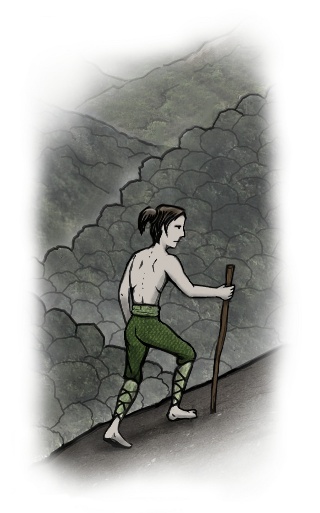Many thanks to Tristan Morris for creating a beautiful illustrated hardcover print edition of the site

 |
|
 |
 |
 |
|
 | |
 | |

A thin, bedraggled stranger came to the Temple one night and asked for master Kaimu. The master was roused and brought to the gate, whereupon the stranger said:
“For years I have wandered this pitiless land, seeking the perfect programming language. Name any one and I’ve given it a go, be it fast or slow, high-level or low, from Ada to Zeno. But whatever the pluses there are minuses too, so I pack my things and hit the road again—which in this case led me to your door.”
Kaimu asked the stranger to describe the language of his heart’s desire.
“It must be suitable enterprise-wide,” the stranger replied, “client-side and server-side, in scripting, in shells and in spreadsheet cells. I need it real-time, multi-threaded and optionally object-oriented; with garbage collection, deadlock detection, custom exceptions, auto-resizing arrays of things and regular expressions for matching strings. I want the simplicity of BASIC, the purity of Smalltalk, the brevity of Haskell, the speed of C, the consistency of Lisp, the readability of Python, the flexibility of Perl, and the portability of... Java, I guess, but with native code bindings that aren’t a mess.”
“Then tomorrow morning we shall assist you as best we can,” said Kaimu. “But tonight you must spend in the carpenter’s shed below the south wall.”
The stranger bowed and departed to make his bed amid sawdust and wood shavings. As Kaimu left for his own chambers a monk asked, “What is your design for him?”
“When dawn breaks,” replied the master, “our guest will see that on the walls of that shed are arrayed ten thousand tools, each crafted to serve a unique purpose. No one would mistake the hammer for the chisel, and no true carpenter would renounce one for the other.”

At the sun’s first light the stranger returned to the Temple gate, there to be greeted again by Kaimu and the monk.
“Do you still seek your heart’s desire?” asked Kaimu.
“No!” replied the stranger. “For in the shed I found a most marvelous dagger, no larger than my hand, whose hilt opened to reveal the most wonderous things: tweezers and toothpicks, pliers and drill-bits, wrenches and reamers and rulers and tiny blades too numerous to count! Holding it I understood that my destiny is to fashion the thing I have sought for—a language made of other languages, a tool to end the need for other tools!”
And with that the stranger bowed and departed.
The monk turned to Kaimu, whose jaw had gone somewhat slack. “What do the annals say on the subject of the Misunderstood Lesson?”
“That it too brings wisdom,” said the master, “If only to the hapless teacher. No doubt I would have been twice as effective had I been half as clever.”
“And what of the stranger?” asked the monk. “Surely he will fail in his endeavor, for that knife he prizes holds neither hammer nor chisel. And should he partly succeed then all the worse, for he will have added yet another language to a world that already drowns in confusion.”
“Let him try, and good fortune to him!” said Kaimu. “If not for fools of his fashion, we would not have Perl or Python, Bourne shell or Tcl, and the world would be a poorer place. I only grieve that you and I are not such fools, for since we will never attempt the impossible, we can never hope to achieve it.”
Thus master and monk left the gate, and went in to the Temple together to greet the morning.

Ein Auszug aus The Codeless Code, von Qi (qi@thecodelesscode.com).
Lizensiert unter der Creative Commons Attribution-NonCommercial 3.0 Unported License.
*The topic was suggested by Xunie.














